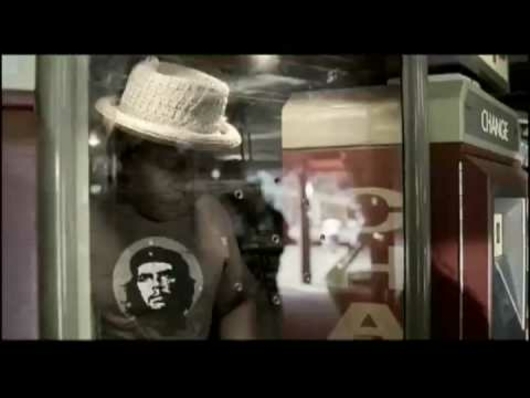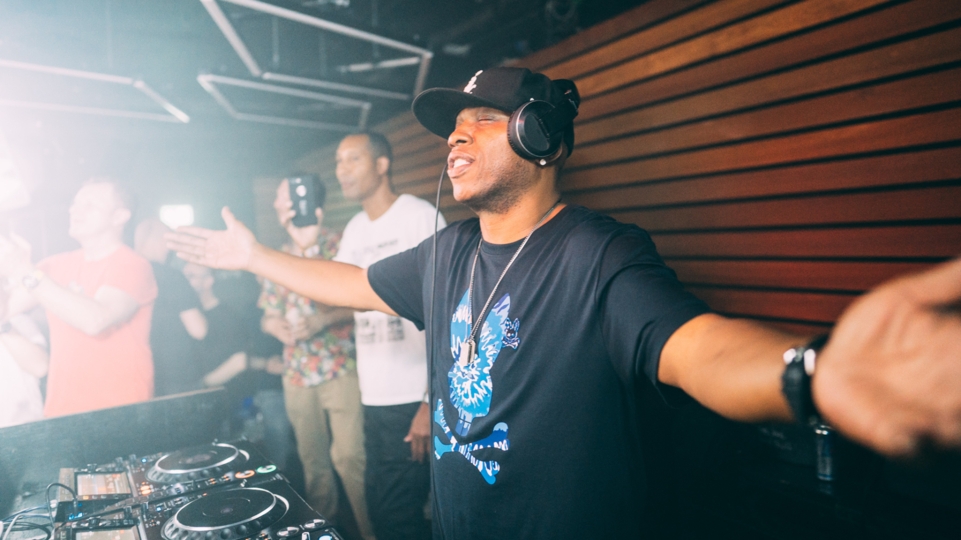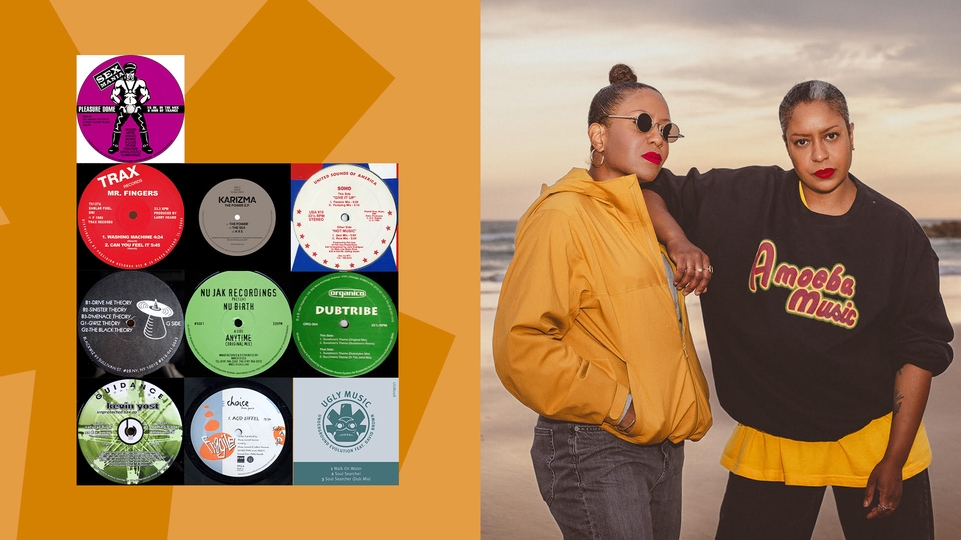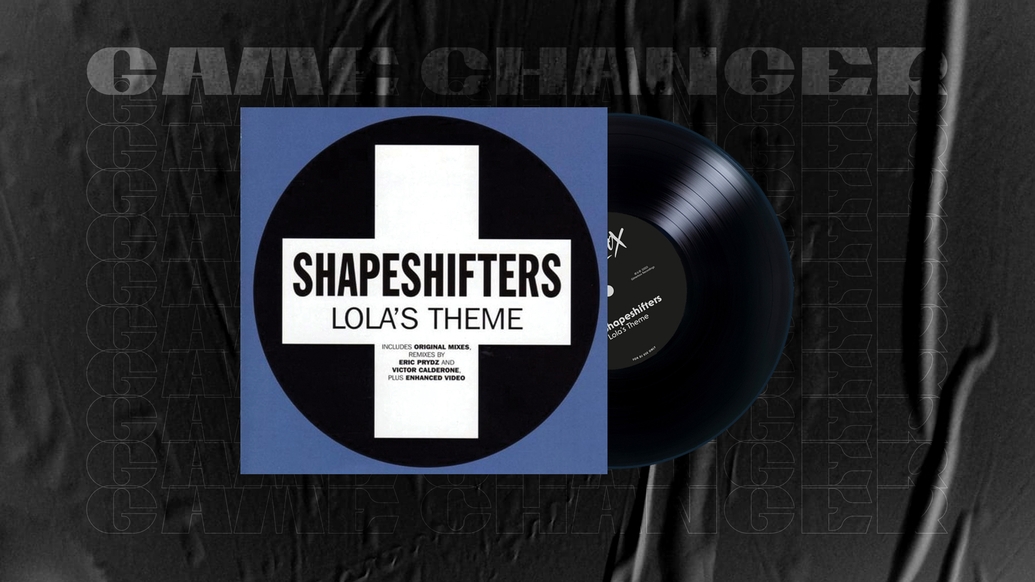
How Shapeshifters' 'Lola's Theme' became an enduring house anthem
From its beginnings as a fortuitous sample to dominating Miami’s WMC and topping the UK Singles Chart, ‘Lola’s Theme’ has become one of the most popular house anthems of its time, and gave Shapeshifters a 20-year career that is still flourishing to this day. Carl Loben talks to one half of the duo, Simon Marlin, about its creation and impact
In 2003, the post-millennial landscape for UK dance music was as rich and varied as it had ever been. UK garage had somewhat fallen away, and dubstep was still a twinkle in the Croydon underground; electroclash was burning brightly, but yet to start morphing into electro-house; trance still dominated the main rooms internationally, while underground techno and house were bubbling along; drum & bass had emerged from millennial gloom, and breakbeat was at its apex. Recovery for clubland financially was well underway after the dip following over-inflated door prices on Millennium night, which acted as a spur to a superclub backlash, and a multitude of small club nights were firing in most cities and towns in the UK.
Simon Marlin was one of those who’d run a small house night in London in the 1990s, after catching the dance music bug. He then started working for Journeys By DJ, one of the first labels to release DJ mixes as CDs. Starting off with a blend by techno stalwart Billy Nasty in 1993, Journeys By DJ went on to put out mixes by the likes of Paul Oakenfold, Farley & Heller and — most famously — Coldcut, whose pioneering ‘70 Minutes Of Madness’ is still today considered to be one of the finest mix albums ever.
Marlin met someone from the short-lived Downboy Recordings in the late ’90s, and started doing A&R work for them. “I was juggling to see what I wanted to be in the music business,” says Simon, who was DJing across London by this point. As part of his A&R duties he visited Sweden in order to check out a couple of Swedish producers “who were producing this great stuff”, and one of them was Max Reich, his future partner in The Shapeshifters. They decided to team up to form a production partnership.
“By then, I felt I had the experience and confidence to go into the studio myself and start producing,” Simon tells DJ Mag. “Max was a great beats maker, so the symbiosis of that seemed perfect to me.” Simon also wanted to launch his own label, and set up Nocturnal Groove with his wife Lola. “One day we were in my living room in Maida Vale [in London] playing some records, and one of those records was Johnnie Taylor ‘What About My Love’ from 1982,” Simon says, referencing the tune that appeared on Taylor’s ‘Just Ain’t Good Enough’ album around the same time.
“I knew the record from before, but there was something about when Lola put it on the turntable, and that first 16 bars played — I hadn’t heard it in that way before, in a way where I was thinking, ‘I’m gonna go into the studio now to do something’. “I didn’t have the confidence then to work with a lot of real musicians, so I was still in the sampling phase of what I was doing,” Simon continues. “That first 16 bars played and I walked over to the deck, picked up the needle to start it again,and pitched it up by +3 to +4BPM. I was like, ‘OK’. I rang Max and said, ‘We’re going into the studio tomorrow; I’ve got an idea’. And that’s how it started.”
The opening bars of the classic R&B cut ‘What About My Love’ feature strings and brass at a slo-mo pace — around 80BPM. Simon and Max sped up the strings and brass into the 120BPM+ range, and with that now oh-so-familiar extended sample they had the basis of their track. But it needed another element, too. “I knew I needed a vocal hook to take the instrumental to another level,” Simon recalls.
“I basically took one phrase from Anthony White’s ‘Love Me Tonight’ track from 1994 on Stress Records, twisted that phrase, cut it up, and made a completely new phrase out of it. This was the bit that goes, ‘I’m a different person / Turn my world around’. If you listen to the original Anthony White, you’ll hear exactly the same words in a completely different way.”
Simon’s DJ experience helped him source this tune for a prospective sample; the piano house tune ‘Love Me Tonight’ had been big for Frankie Knuckles and all manner of other underground house DJs in the mid-’90s.
The working title for the new house record was ‘Lola’s Theme’, as the original inspiration had come from Simon’s wife Lola. “She was the person who had put that record on the deck for me to hear that record at that moment in time,” Simon says. “When it started to progress, it was like, ‘Lola’s Theme’ — yeah, that works for me.”
They originally promo’d the record in November 2003. “I pressed up 500 white labels — it was a simple black and white label with a phone number attached,” he remembers. “That phone number was attached to an answering machine — very old school. We came back from America, and the answering machine was full of distributors, labels, record shops, friends or whatever — all clamouring for more. I pressed up another thousand, which went out straight away. Then, I purposefully left the market dry from January through to March, because I knew that Miami was coming.”

“When Lola put 'What About My Love' by Johnnie Taylor on the turntable, and that first 16 bars played... I walked over to the deck, picked up the needle to start it again, and pitched it up by +3 to +4bpm. I rang Max and said, 'We're going into the studio tomorrow; I've got an idea'” – Simon Marlin
Back in the early noughties a record could still get broken during Miami WMC. Previous years had seen Spiller’s ‘Groovejet’, Layo & Bushwacka’s ‘Love Story’ mashed together with Kings Of Tomorrow’s ‘Finally’ by Tim Deluxe, and — somewhat inexplicably — a reworking of Eddy Grant’s ‘Electric Avenue’ dominate the conference. 2004 was the year of ‘Lola’s Theme’.
“We all went to Miami Winter Music Conference 2004, and literally you could hear that record being played everywhere,” Simon smiles. “It was at that point that I was like, ‘OK, something’s going on with this now’.”
Simon thought the natural home for the track would be Defected, the UK label that had started the century with a flurry of huge house hits. “Simon Dunmore turned it down — true story!” says Marlin. “The first person — and the person I wanted to sign that record — was Simon Dunmore, and I remember going into his office in D’Arblay Street [in Soho] at the time, and saying, ‘I’ve done this’.” He mimes passing Dunmore a record. “And he passed. I was like, ‘OK, no worries’.”
Positiva, the dance offshoot of EMI at the time, snapped up ‘Lola’s Theme’ — as they had done with ‘Groovejet’ a couple of years before. But again, there was the issue of whether to put a full vocal on the track in order to garner radio play. “Because I was a lot more inexperienced then, I was like ‘OK then’,” Simon says. “I didn’t really want to do it — that’s the honest answer. I felt the record stood up on its own anyway, and to this day I believe that had we not put that vocal on it, it would still have gone to No.1. But we did.”
In order to find a suitable vocalist, they put the feelers out and a few London-based singers came into their studio to try out. “Cookie came in, and she was perfect,” Marlin enthuses. Cookie, who sang with the London Community Gospel Choir, added some verses, and was an invaluable a set when ‘Lola’s Theme’ shot to the top of the pop charts and The Shapes were called upon to do the UK’s premier pop show at the time.
“We did Top Of The Pops three times, which was quite unusual, and the reason was because they did the first — and only, as far as I’m aware — live broadcast from outside of the Top Of The Pops studio. They did it in Gateshead, which was amazing. Was that the Christmas Special? I actually can’t remember. But we all grew up watching Top Of The Pops, so to be on Top Of The Pops was pretty mind-blowing.”
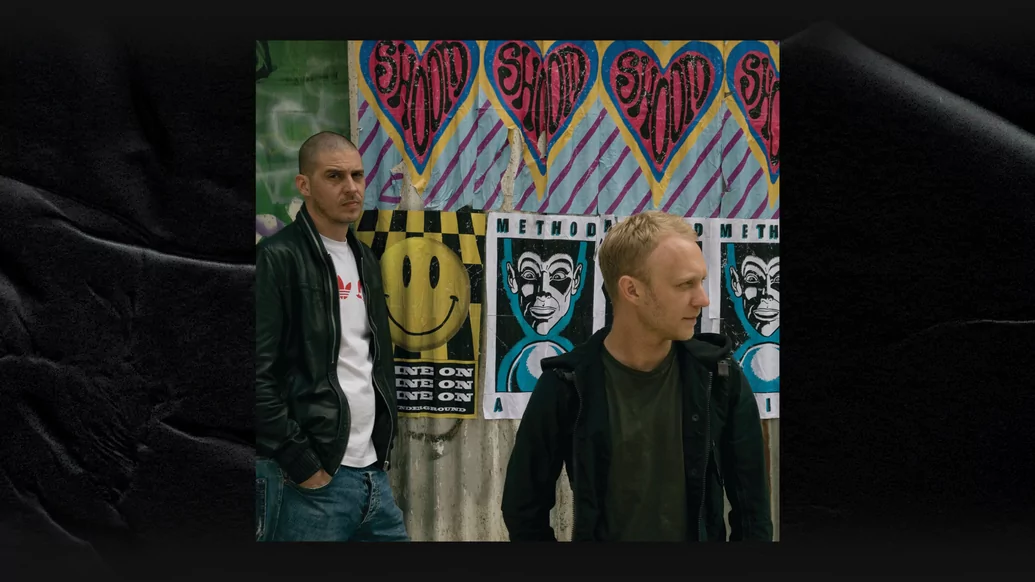
“It’s been extremely good to me. My whole career now is based on that record, but there was 15 years of hard work before that record as well... There’s a lot more going on, there’s a lot more to me personally” – Simon Marlin
By the time the BRIT Awards rolled around, The Shapes were nominated in the Best British Single category. The BRITs had got rid of the dance category the year before due to the perceived dip in fortunes for the genre, a factor which Simon believes was behind their failure to win the award — although they were up against stiff competition the likes of George Michael, The Streets, Sugababes, Band Aid 20 and Natasha Bedingfield. Will Young’s ‘Your Game’ came out victorious.
“They were never going to let our record win, even though we outsold all of them — and probably got played on the radio more than all of them as well,” Simon exclaims. “Am I bitter about it? Yes, just a little bit.”
‘Lola’s Theme’ allowed The Shapes to have a 20-year career that is still flourishing to this day. Their next three singles from the ‘Sound Advice’ album all got into the UK Top 40, and in 2008 they signed to Defected — the first label to initially turn them down. They worked with Frankie Knuckles, released various mix comps, did some high-profile remixes of George Michael, Todd Terry, Moby, Empire Of The Sun and lots more, and held down a DJ residency at Pacha in Ibiza for more than a decade.
In 2017, Max stepped away from the group, leaving Simon in sole charge. In the intervening years, he’s worked on the ‘Let Loose’ album project, which has involved recording with a number of notable musicians — among them Billy Porter, Joss Stone, Kimberly Davis and Teni Tinks.
“I went out there on my own and surrounded myself with some amazing musicians,” he explains. “I put it all together in one album to mark a period of time, and I’m so, so, so proud of it. It’s a collaborative effort of many people — but it’s essentially my brainchild of the last seven years.”
So has ‘Lola’s Theme’ been good to him? “It’s been extremely good to me," Marlin smiles. “My whole career now is based on that record, but there was 15 years of hard work before that record as well. It’s very easy for someone to say, ‘Well, that record was your career’. No, it’s not, there’s a lot more going on, there’s a lot more to me personally, and I hope people will understand that with this album.”
But did he ever get bored of playing ‘Lola’s Theme’ over the years? “I’m not gonna lie — yes,” he replies, swiftly. “But it’s one of those where I leave it for a little while and then come back to it. The other thing is that then I’d hear Denis Sulta play it, Melé play it, Marco Carola play it, this one and that one were still playing that record. So you kinda go, ‘Shit yeah, I should still be playing this record’.
“I’d be at gigs and some people would say, ‘Why didn’t you play that record?’” he continues. “I’m still very very proud of it, I’m still very proud that people connect with it to this day — new audiences too. But you have to understand, I’ve been playing this record a long time.”

